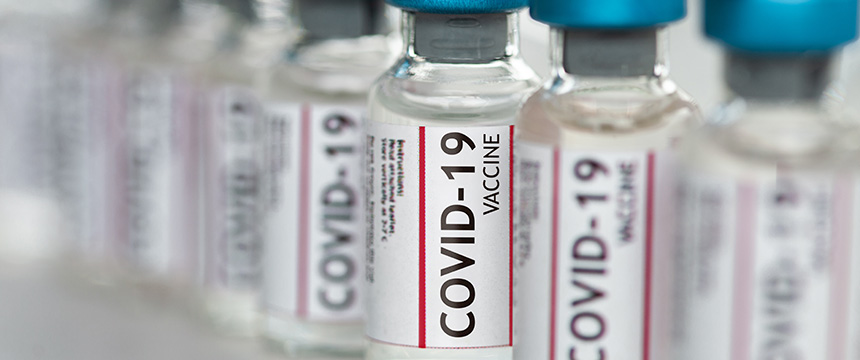
As soon as the Mexican Ministry of Health approved the first emergency-use authorization for a COVID vaccine in December of 2020, the National Vaccination Plan immediately followed.
National Vaccination Plan
The Mexican Government has laid out the calendar of the country´s vaccination schedule (progress to date casts doubt upon whether the following is achievable):
| STAGES | FORESEEN DATES | POPULATION GROUP |
| 1 | December 2020 – February 2021 | Health workers dealing with COVID |
| 2 | February – April 2021 | Other health workers and people 60+ years of age |
| 3 | April – May 2021 | People 50-59 years old |
| 4 | May – June 2021 | People 40-49 years old |
| 5 | June 2021 – March 2022 | People 19-39 years old (vaccine cannot be given to children up to 18 years of age) |
In order to execute the above, the Ministry of Health established special brigades to coordinate and provide support throughout Mexico. There is a special brigade for each of the Mexican States, whose director is responsible for their operational strategy and who may require the support of State and Municipal authorities, as well as professionals and sanitary-disciplines experts and assistants.
For distribution activities, the Ministry of Health has obtained the support of the Armed Forces and the National Guard.
Which vaccines have been authorized in Mexico so far?
The Mexican Government has authorized the following vaccines:
- BNT162b2 by Pfizer, Inc./BioNTech (December 11, 2020)
- AZD1222 by AstraZeneca/Oxford University (January 4, 2021)
- Sputnik V by the Gamaleya Institute (February 2, 2021)
- Ad5-nCoV by CanSinoBiologics Inc. (February 9, 2021)
- CoronaVac by Sinovac Research and Development Co. (February 9, 2021)
In addition, vaccines from Janssen/Johnson & Johnson, CureVac AG, and Novavax, Inc. are being evaluated by Mexican health authorities.
Who can actively participate in the National Vaccination Plan?
On January 25, 2021, the Ministry of Health issued an Executive Order allowing third parties to participate in the execution of the National Vaccination Plan.
For such purpose, State governments and private entities and individuals related to Mexico’s National Health System1 are allowed to participate in the acquisition, import, distribution and application of COVID-19 vaccines in Mexico, as long as the following conditions are met:
- Provide the Ministry of Health with the purchase agreements entered into with pharmaceutical companies authorized by the Mexican Government;
- Inform the Ministry of Health on the amount of vaccine doses acquired and those eventually applied;
- Respect the calendar and vaccination prioritization established in the National Vaccination Policy, to avoid duplication;
- Implementation of preventive and control measures in accordance with the provisions issued by the Ministry of Health; and
- Guarantee the traceability of the vaccination process and share periodic reports as required by the Ministry of Health.
No further details have been released of how interested parties may individually participate, or even interact with the Mexican Government in the National Vaccination Plan.
Other relevant importation measures
On February 2, 2021, the Mexican President published a Decree that provides Customs measures to facilitate the importation of goods to combat the COVID outbreak.
The following Harmonized Tariff System codes were created:
| DESCRIPTION | HTS CLASSIFICATION | UNIT OF QUANTITY | RATES OF DUTY |
| Vaccine to combat the SARS-Cov2 Virus | 3002.20.10 | Kg | Free |
| Oxygen tanks for medical purposes | 7613.00.02 | Number | Free |
Please consider that the aforementioned rates of duty will be applicable during the outbreak; when it ends, the goods will be subject to a rate of duty of 5% and 10%, respectively.
Relevant importation procedures by the Ministry of Health, a number of which have recently been relaxed, still need to be followed to import said goods.
COVID-19 continues to impact companies in all sectors of the economy. Foley is here to help our clients effectively address the short-term and long-term impacts on their business interests, operations, and objectives. Foley provides insights and strategies across multiple industries and disciplines to provide timely perspective on the wide range of legal and business challenges that companies face conducting business while dealing with the impact of the coronavirus. Click here to stay up to date and ahead of the curve with our key publications addressing today’s challenges and tomorrow’s opportunities. To receive this content directly in your inbox, click here and submit the form.
——————————————————
1 Mexico’s National Health System is comprised of (i) the agencies and entities of the Public Administration, both federal and local, and the individuals or legal entities of the social (sic, undefined) and private sectors, who provide comprehensive (full service) health services; (ii) and the mechanisms for coordinating actions to fulfill the right-to-health protection.

